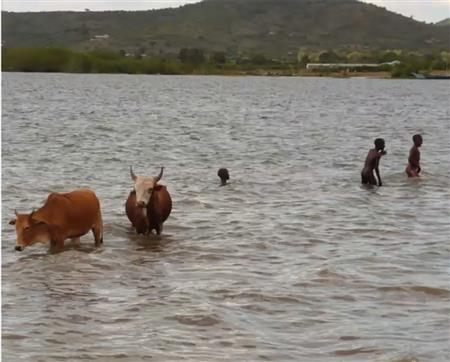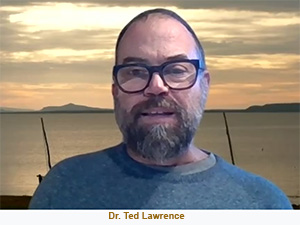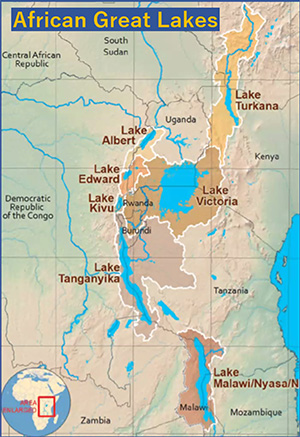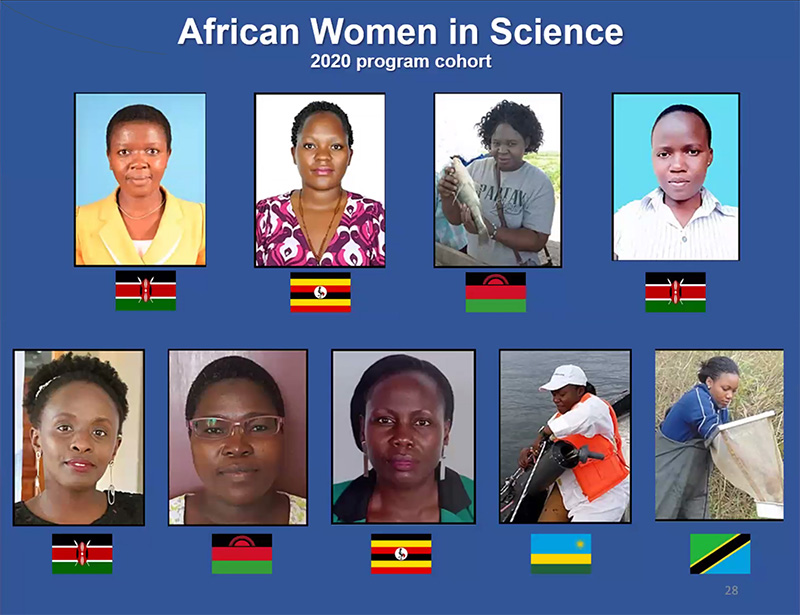
Speaking to Dryden Rotarians from Ypsilanti, Michigan, Dr Ted Lawrence, Executive Director of IISD-ACARE described how under IISD’s leadership, Dryden’s World-renowned Experimental Lakes Area will help save the Seven Great Lakes of Africa.
 In 2014 the International Institute for Sustainable Development (IISD) came to the rescue and saved the Experimental Lakes Area from the Harper government’s 2012 Bill C-38’s policy of closure and destruction.
In 2014 the International Institute for Sustainable Development (IISD) came to the rescue and saved the Experimental Lakes Area from the Harper government’s 2012 Bill C-38’s policy of closure and destruction. Now under the leadership of IISD, a new major partnership with the African Center for Aquatic Research and Education (ACARE) has been created. Their goal is to gather has much data on the Seven Great Lakes of Africa (see map) as we have on other freshwater bodies throughout the world.
Now under the leadership of IISD, a new major partnership with the African Center for Aquatic Research and Education (ACARE) has been created. Their goal is to gather has much data on the Seven Great Lakes of Africa (see map) as we have on other freshwater bodies throughout the world.Six expert science advisory groups have been formed to harmonize research priorities and harness resources to more effectively address the numerous stressors on these seven lakes.
At this time, the lakes are both a local source of fish and an international trading commodity. Overfishing and invasive spices are threats to the long-term sustainability of the fishery. Water also is important to the local people for washing clothes and vehicles and as drinking water for people and animals. Lake Victoria, in particular, is shallow and suffers from low water levels and overly high levels.
One of their first endeavours is to tie together the professors of water research at nine Universities in the nine countries surrounding the African Great Lakes with similar universities in North America, Europe and Asia including the Experimental Lakes Area.

One of the major initiatives of IISD-ACARE is the African Women in Science Project. Dr Lawrence is looking for funding to bring these women to the IISD-Experimental Lakes Area for training.
For more information check out https://www.agl-acare.org/ .